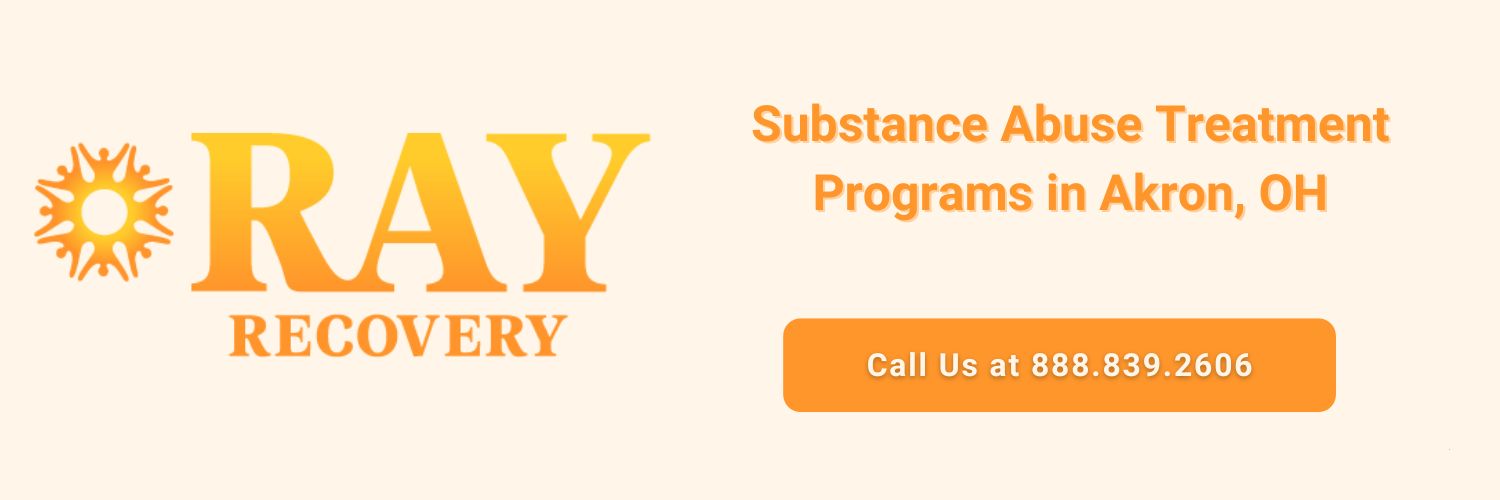If you have experience with substance abuse — whether directly or indirectly — you understand how entangled the issue can become in the mind.
Likewise, if you’ve ever suffered prolonged mental distress or know someone who has, you can see how substance abuse can enter into the mix and complicate things even more.
Understanding the interplay between substance use and mental health has helped many people struggling with addiction personally, or through afflicted loved ones, begin to untie the knot. The more you understand the connection between substance abuse and mental disorder, the more effectively you can address these issues for yourself or someone you care about.
Ray Recovery discusses here the mind-body-drug relationship and how disorders of this kind can be treated.

Is Substance Abuse a Mental Illness?
While substance abuse cannot be said to originate directly from the mind, it is considered a mental health condition for two reasons:
- It affects the mind acutely.
- It often comes about in concurrence with a mental illness, such as anxiety, depression, bipolar disorder, obsessive-compulsive disorder, etc.
Substance abuse, or substance use disorder (SUD), is characterized by a problematic pattern of substance use that negatively affects a person’s health, relationships, and quality of life. The brain and behavior are so impaired that the person loses their ability to control their use of drugs, alcohol, medications, etc.
As with other mental health disorders, substance abuse can be addressed through evidence-based interventions. Ray Recovery specializes in the treatment of substance abuse and understands how indivisible sobriety is from mental wellness.
What Is Substance Abuse?
Substance abuse is a pattern of harmful use of substances, regardless of the negative consequences associated with continued use. Unlike casual substance use — which is controlled and only occasional — abuse significantly disrupts your life in every area: health, work, relationships, etc.
Those struggling with substance abuse typically continue to use in an attempt to alter their mood, cope with negative feelings, or avoid unpleasant withdrawal symptoms.
Some signs that substance use may have progressed to substance abuse include:
- Physical
- Shabbier physical appearance
- Bloodshot eyes
- Strange smells on the person’s body, clothing, or breath
- Weight loss or gain
- Poor coordination and/or tremors
- Slurred speech
- Experiencing withdrawal symptoms while not using the substance
- Behavioral:
- Unexplained changes in personality, attitude, mood, sleep, or appetite
- Periods of irritability, fear, hyperactivity, or giddiness
- Sudden mood swings
- Poor performance in studies, sports, or at work
- Secretive or suspicious behavior
- Lack of motivation and neglect of responsibilities
- Inability to discontinue use despite negative consequences
- Social:
- New friends/friend groups
- Difficulties with the law
- Higher frequency of fights with peers

The Science Behind Substance Abuse as a Mental Illness
The DSM-5 — a diagnostic tool used by mental health professionals — classifies substance use disorder as a mental disorder because it alters brain function, impairs control, etc., just as other mental health conditions do.
The pleasure of substance use and the difficulty of abstinence reinforce continued use of a substance until it becomes an addiction. This happens because substances influence the following areas of the brain:
- Basal ganglia: The overactivation of these positive motivation centers produces feelings of euphoria and desensitizes them so that only the substance (often in higher quantities) can cause pleasure.
- Amygdala: This center of feelings of anxiety and stress is sensitized during abstinence, compelling the person to calm these feelings with continued substance use.
- Prefrontal cortex: This region of the brain — critical for thinking, planning, and exercising impulse control — is depressed by substances. This impairment, together with cravings for intoxication and withdrawal symptoms, compels drug-seeking behavior.
As healthy alternative sources of reward become less “rewarding” to someone in the grip of substance abuse disorder, the cycle of substance abuse is reinforced. It is important to break the cycle as soon as possible; longer substance abuse often makes for a more protracted recovery.
Substance Abuse and Mental Health Disorders: What Happens When the Two Overlap?
Besides dealing with the “normal” influence of substances on the mind, a person may have an additional burden of mental illness that is reinforced by and/or exacerbated by substance abuse. It may even be one of the key reasons for substance abuse in the first place.
When substance use disorder and a mental illness coexist, it is important that treatment be adjusted to meet the unique needs that their co-occurrence presents. Dual diagnosis therapists are specially equipped to address the challenges of people struggling under both these burdens.
Contact Ray Recovery today to learn how our therapists address co-occurring substance use and mental health disorders.
5 Treatment Options That Address Both Substance Abuse and Mental Illness
A combination of the following treatments will most effectively address co-occurring substance use disorder and mental illness.
#1: Therapy
Behavioral therapies assist people in exploring personal motivations, developing coping strategies, and improving family dynamics and communication. These help people become more balanced in mind so that they no longer feel that substance use is their only option.
Here are some of the therapies we offer our patients at Ray Recovery:
- Acceptance and commitment therapy (ACT)
- Cognitive-behavioral therapy (CBT)
- Dialectical behavior therapy (DBT)
- Holistic therapy
- Meditative therapy
- Motivational enhancement therapy
- Trauma therapy
- Family or group therapy
- Dual diagnosis treatment
#2: Medication-Assisted Treatment
Medication-assisted treatment involves the use of pharmacological preparations that:
- Discourage substance use by causing unpleasant symptoms
- Block the pleasant effects of substance use
- Prevent withdrawal symptoms
- Treat an underlying mental disorder
#3: Lifestyle Changes
Although these work best when combined with professional help, they are a great first step toward learning to cope with negative feelings and prevent relapse:
- Getting regular sleep
- Establishing a daily routine that prioritizes hygiene, diet, and exercise
- Practicing mindfulness and meditation
- Recognizing and avoiding triggers
- Limiting toxic relationships
- Volunteering or picking up a hobby
#4: Group Support
Attend regular group meetings that encourage sobriety and support you and your family through the challenges of recovery. The following group support settings help reinforce your commitment to avoid substance abuse, even with an underlying mental illness:
- AA (Alcoholics Anonymous)
- NA (Narcotics Anonymous)
- CR (Celebrate Recovery)
- SMART (Self-Management and Recovery Training)
- Local church groups dedicated to addiction recovery
#5: Professional Rehabilitation
Professional treatment programs are designed to address substance abuse by supporting various aspects of a person’s life to the degree that their situation requires. Individuals earn more independence and take on greater levels of responsibility as their recovery progresses.
Ray Recovery’s rehabilitation programs include:
- Partial hospitalization
- Intensive outpatient
- Men’s and women’s rehab
- Veterans’ rehab
- Professionals’ rehab
These programs differ in the comprehensiveness of their services and the amount of structure they provide.

Seek Professional Support and Dual Diagnosis Treatment for Substance Abuse and Mental Illness at Ray Recovery
At Ray Recovery, we understand that both substance abuse and mental illness are complex and unique for every individual. That’s why we offer treatment that is tailored to your particular needs.
For instance, we are experienced in:
- Restoring people from addiction to fentanyl, meth, cocaine, heroin, opioids, alcohol, and benzos
- Helping people manage mental health disorders such as anxiety, depression, bipolar disorder, (borderline) personality disorder, obsessive-compulsive disorder, and trauma
Whatever your story is, whatever demographic you come from, whatever substances you struggle with, and whatever mental illness has you in its grip, Ray Recovery wants to help.
Call us today to discuss treatment for substance abuse with a co-occurring mental disorder.
The content in this blog is not intended to be a substitute for professional medical advice, diagnosis, or treatment. Always seek the advice of your physician or other qualified health provider with any questions you may have regarding a medical condition.



